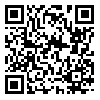BibTeX | RIS | EndNote | Medlars | ProCite | Reference Manager | RefWorks
Send citation to:
URL: http://cstp.khu.ac.ir/article-1-2537-en.html
This qualitative study aimed to compare the qualification of Higher Education system and Education system in field of teacher education. Using qualitative content analysis, with open coding data by interviews and open-ended questionnaire, data been coded and categorized and then analyzed. Participants of research were selected by purposive sampling (22 samples). Through participants opinions four category of views were identified; 1- agree with higher education, 2- agree with education, 3- conditional agree with both, 4- agree with with the new structure. Inattention to practical practices, lack of affiliated schools for training, and inappropriate evaluation of students’ performances in training, are the most important weaknesses of higher education system. Also, low academic ability of the faculties of Farhangian University, low flexibility and very limited freedom to thinking for change, low skills in research, and intense centralism are the most weaknesses of Education system specially Farhangian University. Adherents of new structure for teacher training, critisize both organizations (Education system and Higher education system) and named weaknesses such as: weakness in educational and pedagogical research and analysis, weakness in theorizing and acting and presenting techniques for improvement teacher education, and weakness in making appropriate contents for the curricula of teacher training. Ultimately, according to a teacher education curriculum, 4 aspects of knowledge have been proposed; content knowledge, educational knowlwge, practice knowledge, and introductory knowledge into teacher profession.
Received: 2016/01/7 | Revised: 2017/03/11 | Accepted: 2016/12/18 | Published: 2017/02/8
| Rights and permissions | |
 |
This work is licensed under a Creative Commons Attribution-NonCommercial 4.0 International License. |






